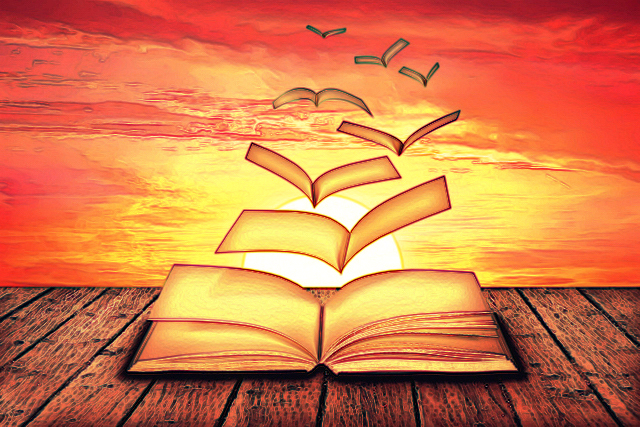
“In the journal I do not just express myself more openly than I could to any person; I create myself. The journal is a vehicle for my sense of selfhood. It represents me as emotionally and spiritually independent. Therefore (alas) it does not simply record my actual, daily life but rather—in many cases—offers an alternative to it.” ~Susan Sontag
My first journal was born into existence when I was twelve. I remember carefully choosing my favorite comics, pictures from magazines, and the odd scribble I’d drawn. Tongue stuck out in concentration, gluing them strategically on an unused exercise book. Wrangling with the clear sticky contact mum used to cover my schoolbooks, I encased the precious creation in it, preserving it forevermore: Nicole’s Diary.
Needless to say it’s an extremely embarrassing collection of teenage angst, weird bits and pieces like lists of potential names for a child I didn’t and still don’t want; pages of dialogue between myself and other people with in-depth analysis of these conversations beyond anything reasonable; and daydreaming about the life I wished I had or complaining about the life I did have.
Whenever I happen upon this old journal, It takes strength not to throw it away, just in case some invisible person were ever to discover it and think this was actually me.
The journals since then have gone through phases. Phases where I wrote every day, or just once every few months. Where I was obsessed with recording quotes or where I collected everything from movie tickets to foreign sweet wrappers. There are endless lists, ways to improve myself, deep sadness, furious anger, joyful enthusiasm, unbridled hope, and ponderings on love during many a loving or loveless encounter.
Historically journaling has been extremely popular, and if you think about the mountains of YouTubers and bloggers, it still is.
They used to be more of a private affair, but consider the way we write when we really let the pen go. We’ve derived important pieces of the past from people’s journals. Are they genuine portraits of the time, or just endless, worrisome chatter from a mind trying to figure stuff out?
These days it’s popular to have a gratitude journal, and I can see why—the idea being to cultivate gratitude as part of our being, and not give so much weight to the negative and the worrying. Remembering what we are grateful for is supposed to give us perspective on the hard stuff.
But I don’t know. Writing about the hard stuff is actually what helps me get through it. It’s what makes journaling so incredibly powerful.
Here are five reasons why:
1. Journaling is the act of processing the past (and sometimes the future) in the here and now.
For many of us, talking and writing isn’t about performance or the telling of something—it’s actually the processing. Getting it outside of yourself can give it a new shape.
It’s like opening the clothes dryer mid-cycle. You interrupt the cyclic thinking and the jumble of ideas fall out, allowing each one to be tossed around and thought about on it’s own. The amount of times solutions have begun to appear while I was actually writing is astounding.
2. Writing is and of itself cathartic.
Try this: Set the timer on your phone for ten minutes, grab a pen, and write about your day until the alarm goes. Give yourself permission to burn it if you find yourself getting held back by the worries of who is going to read it (or delete it if you typed).
Even if nothing at all has happened, you will most certainly have thoughts in your head that are dying to get out. Offloading conscious and subconscious stuff helps the mind become clearer and you calmer.
3. Feelings and experiences become less overwhelming.
A while ago I wrote a blog post about my partner’s beautiful little old dog being killed in a car accident. When I was writing the piece, I found myself crying almost the whole time.
As I described the accident, moved onto what she meant to him, as I remembered my own times with her, it became an incredibly meaningful process. I spent some time looking for photos and wanted to honor her and the humans she had touched in her life.
Writing about the grief helped me immensely. It slowed it down as well as enriched her life. I stopped simply wanting to escape the awful feeling and instead was able to wade through it and just feel. Even if no one read it, I felt like I’d created a full-bodied process—a eulogy—that honored her and helped me hold her light after she’d passed.
4. Reading back helps reveal patterns.
Sure, it can be frustrating to look back at a journal from three years ago and see that you are writing about the same thing in the same ways again, but that can also be empowering. It’s a researcher’s dream: go back and investigate and then spend some time reflecting on what keeps you stuck if you notice patterns.
Similarly, you can celebrate any little (or big) changes you have made. “Wow, I used to worry about what people thought of me so much… it seems now I’m more concerned with what I think of myself and if I’m being a good person. What does that tell me about my journey so far? What do I want to take with me moving forward?”
5. You can use creative journaling to change your story.
We tend to tell our stories in the same way over and over, emphasizing the same points in the same ways, and even adding to a narrative by noticing everything that fits in with the story and ignoring everything that doesn’t.
If that narrative is overwhelmingly negative (e.g.: I’m a people pleaser; I’m a doormat; I’m hopeless; I’m a victim; I’m unlovable; I’m always anxious; I can’t do anything about this; Only jerks like me etc.) then it can lead to a full-on negative identity conclusion based on one pretty shaky theme.
Try injecting some freshness into a tired story. Journal prompts easily found via Google can help you do that, inviting you to answer questions you wouldn’t normally think of in the context of any given experience.
Writing requires you to dig a little deeper into stories, where you may find that the ‘full’ conclusion isn’t based on much: you’ve dated a few jerks and have decided that you only ever attract terrible people. But if you are prompted to consider all the facts, there was a decent person who you just weren’t attracted to, so is there a more truthful nuanced conclusion to be considered in this narrative?
What becomes available when you widen your perspective?
—
I can think of a bunch more reasons why journaling deserves a comeback, but I hope these five have injected some enthusiasm in you as a great starting ground. Just last month I began my own personal project of writing almost daily again, as well as launching a little Facebook group to discuss journal prompts.
Sharing some of your writing has an added benefit of being seen—becoming visible in the ways you want and feel safe to. To acknowledge your struggles as well as find humor in them, and be able to see beauty in who you are no matter what, is more than worthy of the little effort it takes to pick up a pen (or use a voice machine) and pour ourselves onto the page.
About Nicole Hind
Nicole Hind is the founder of Unveiled Stories, an online counselor, and relationship/dating and personal coach on a mission to elevate the confidence of everyone who doesn’t fit into the mold. She's open to inquiries from new clients, providing a refuge for couples and singles who are sick of being stuck and ready for change. She’s also the creator of the only narrative therapy online course ‘From Bashful To Bold.’ Sign up for her free blog here.













 Though I run this site, it is not mine. It's ours. It's not about me. It's about us. Your stories and your wisdom are just as meaningful as mine.
Though I run this site, it is not mine. It's ours. It's not about me. It's about us. Your stories and your wisdom are just as meaningful as mine. 